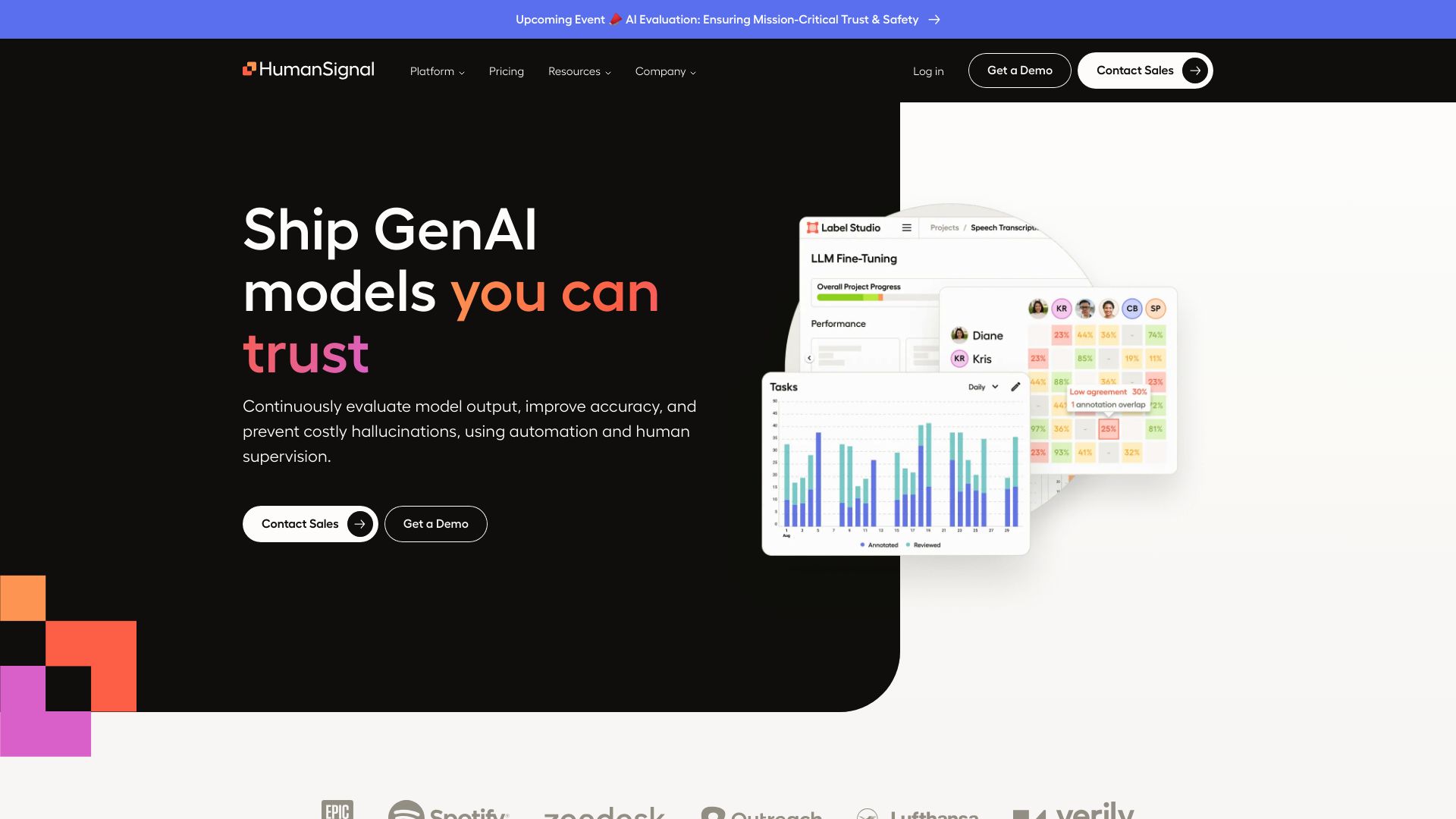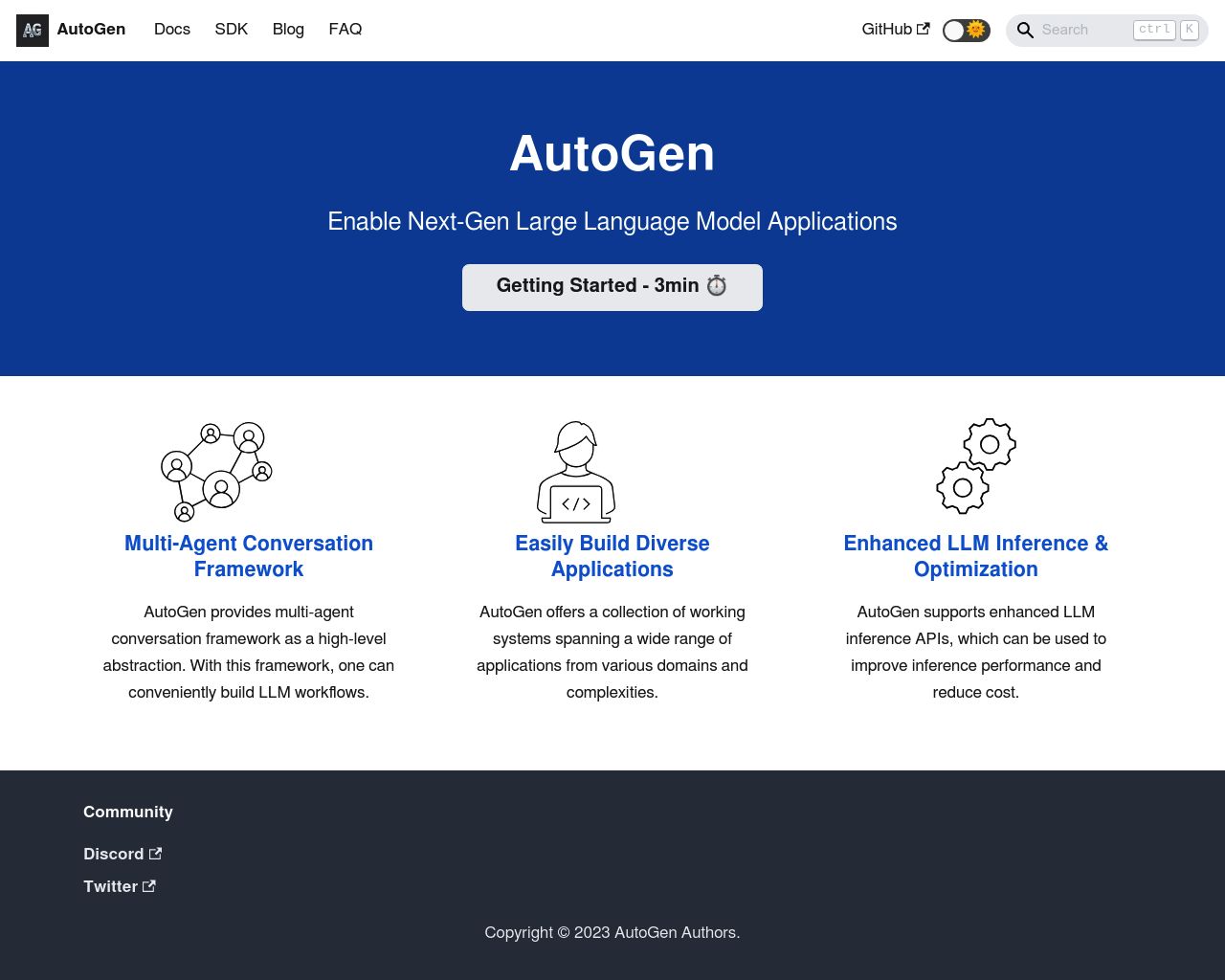Adala And AutoGen: An In-depth Comparison
AI-powered tools have become indispensable for businesses and developers seeking to harness the power of machine learning. This comparison explores Adala, AutoGen, and SmythOS, three innovative platforms reshaping AI development. Adala specializes in autonomous data labeling, AutoGen excels in multi-agent conversations, while SmythOS offers a comprehensive solution for AI integration and deployment. We’ll examine their core features, usability, and potential applications to help you choose the right tool for your AI projects. Whether you’re a seasoned developer or a business leader exploring AI solutions, this guide provides valuable insights into these cutting-edge platforms.
Adala Overview
Adala revolutionizes data labeling with its open-source framework for autonomous AI agents. These agents learn from ground truth datasets, evolving into efficient prediction engines for large-scale data labeling tasks. Adala’s innovative approach combines machine intelligence with human expertise, ensuring high-quality labeled data for AI model training.
Adala revolutionizes data labeling with its open-source framework for autonomous AI agents… evolving into efficient prediction engines for large-scale data labeling tasks.


Developed by Adala, formerly known as Heartex, this platform caters to data scientists, researchers, and AI developers seeking to streamline their data labeling processes. Adala’s agents excel at tasks like classification and labeling, learning from interactions with datasets to improve accuracy over time. This iterative learning process transforms raw data into valuable training sets for machine learning models.
Adala’s agents excel at tasks like classification and labeling, learning from interactions with datasets to improve accuracy over time.
Adala’s framework supports various data types, including text, video, and images, making it versatile for diverse AI applications. The platform emphasizes collaboration, allowing teams to work efficiently on data labeling projects. Its integration capabilities enable seamless incorporation into existing AI workflows, supporting popular models like GPT-4 and those from Hugging Face.
While Adala offers powerful tools for autonomous data labeling, it may present a learning curve for users new to AI frameworks. The platform’s focus on open-source development fosters innovation but might require more technical expertise compared to some proprietary solutions. Adala’s commitment to explainable AI and ethical considerations addresses growing concerns in the AI community about transparency and bias mitigation.
In the competitive landscape of AI tools, Adala stands out for its specialized focus on autonomous data labeling and its integration of human expertise with AI capabilities. This unique approach positions Adala as a valuable asset for organizations looking to enhance their data-centric AI processes, particularly those prioritizing open-source solutions and collaborative development environments.
AutoGen Overview
AutoGen empowers developers to build sophisticated Large Language Model (LLM) applications through multi-agent conversations. This open-source framework enables the creation of customizable, interactive agents that collaborate with LLMs, tools, and humans to tackle complex tasks.


AutoGen’s core strength lies in its ability to orchestrate multi-agent dialogues. These agents work together autonomously or with human input, adapting to various use cases. The framework maximizes LLM performance through advanced inference capabilities, including tuning, caching, and error handling.
AutoGen’s core strength lies in its ability to orchestrate multi-agent dialogues… adapting to various use cases.
Developers can tailor agents to specific needs, integrating LLMs, human inputs, and external tools. AutoGen supports both fully autonomous operations and human-in-the-loop problem-solving, offering flexibility for applications requiring human oversight.
The platform has demonstrated effectiveness across diverse applications, from automated task solving and code generation to continual learning and complex problem-solving in group settings. For developers, AutoGen provides debugging tools and logging functionalities, essential for optimizing LLM-based systems.
While AutoGen offers powerful capabilities, it may present a steeper learning curve for non-technical users compared to some visual builder platforms. Its focus on multi-agent conversations and LLM optimization makes it particularly suited for developers and researchers pushing the boundaries of AI applications.
Feature Comparison
Adala and AutoGen offer distinct approaches to AI development, with notable differences in their core components and security features. Adala focuses on autonomous data labeling agents, while AutoGen emphasizes multi-agent conversations for complex problem-solving.
In terms of core components, AutoGen provides a more comprehensive framework for creating customizable, interactive agents. It excels in orchestrating multi-agent dialogues, allowing agents to collaborate autonomously or with human input. This capability is particularly useful for tackling complex tasks across various domains. Adala, while powerful in its niche, lacks the broad multi-agent collaboration features of AutoGen.
Regarding security, both platforms offer data encryption and OAuth support. However, AutoGen’s framework includes more advanced features for constrained alignment, ensuring AI behavior aligns with organizational goals and ethical guidelines. This focus on ethical AI practices gives AutoGen an edge in scenarios where transparency and accountability are crucial. Adala, while secure, does not offer the same level of granular control over AI behavior and ethical considerations.
Feature Comparison Table
| Adala | AutoGen | SmythOS | |
|---|---|---|---|
| CORE FEATURES | |||
| Visual Builder | ❌ | ❌ | ✅ |
| No-Code Options | ❌ | ❌ | ✅ |
| Audit Logs for Analytics | ❌ | ✅ | ✅ |
| Agent Work Scheduler | ✅ | ❌ | ✅ |
| SECURITY | |||
| Constrained Alignment | ✅ | ❌ | ✅ |
| IP Control | ❌ | ❌ | ✅ |
| COMPONENTS | |||
| Data Lakes | ❌ | ❌ | ✅ |
| DEPLOYMENT OPTIONS (EMBODIMENTS) | |||
| Staging Domains | ❌ | ❌ | ✅ |
| Production Domains | ❌ | ❌ | ✅ |
| Deploy as Scheduled Agent | ❌ | ❌ | ✅ |
| DATA LAKE SUPPORT | |||
| Hosted Vector Database | ✅ | ❌ | ✅ |
| Sitemap Crawler | ❌ | ❌ | ✅ |
| YouTube Transcript Crawler | ❌ | ❌ | ✅ |
Best Alternative to Adala and AutoGen
SmythOS stands out as the superior alternative to Adala and AutoGen for AI agent development and deployment. Our platform combines powerful capabilities with unparalleled ease of use, making advanced AI accessible to users of all skill levels. SmythOS’s visual drag-and-drop interface enables rapid agent creation without coding, a key advantage over Adala and AutoGen’s more technical approaches. We offer a comprehensive feature set spanning hosted agents, multi-environment support, autonomous operation, and human-AI collaboration.
SmythOS stands out as the superior alternative to Adala and AutoGen for AI agent development and deployment… making advanced AI accessible to users of all skill levels.
Unlike our competitors, SmythOS provides unlimited use cases through extensive API integrations and support for various AI models. Our platform excels in critical areas where Adala and AutoGen fall short, including visual building tools, no-code options, and advanced deployment capabilities like staging domains and scheduled agents. SmythOS delivers enterprise-grade scalability and security while maintaining an intuitive user experience. For organizations seeking to harness the full potential of AI agents quickly and efficiently, SmythOS is the clear choice, offering unmatched versatility, ease of use, and deployment options compared to Adala and AutoGen.
Conclusion
Adala and AutoGen offer powerful AI solutions for data labeling and multi-agent conversations, respectively. Adala excels in automating data labeling tasks, while AutoGen shines in orchestrating complex AI interactions. Both platforms provide valuable tools for developers and researchers pushing the boundaries of AI applications.
However, SmythOS emerges as the superior choice, offering unparalleled versatility and user-friendliness. Our drag-and-drop interface makes AI development accessible to a broader audience, while our extensive integration ecosystem supports over 300,000 connections to various APIs, AI models, and tools. This flexibility allows SmythOS to adapt to virtually any workflow or business process.
Unlike Adala and AutoGen, which focus on specific AI tasks, SmythOS provides a comprehensive platform for creating and deploying AI agents across multiple environments. Our ’Create Once, Deploy Anywhere’ approach enables users to build agents that seamlessly integrate into various platforms, from chatbots to APIs and scheduled tasks. This versatility, combined with our robust security features and scalability, makes SmythOS the ideal choice for businesses looking to harness the full potential of AI.
We invite you to experience the future of AI development with SmythOS. Explore our diverse range of AI-powered agent templates to jumpstart your projects, or create a free SmythOS account to build unlimited AI agents at no cost. With our 30-day money-back guarantee, you can discover the power of SmythOS risk-free and revolutionize your approach to AI integration and automation.
Last updated:
Disclaimer: The information presented in this article is for general informational purposes only and is provided as is. While we strive to keep the content up-to-date and accurate, we make no representations or warranties of any kind, express or implied, about the completeness, accuracy, reliability, suitability, or availability of the information contained in this article.
Any reliance you place on such information is strictly at your own risk. We reserve the right to make additions, deletions, or modifications to the contents of this article at any time without prior notice.
In no event will we be liable for any loss or damage including without limitation, indirect or consequential loss or damage, or any loss or damage whatsoever arising from loss of data, profits, or any other loss not specified herein arising out of, or in connection with, the use of this article.
Despite our best efforts, this article may contain oversights, errors, or omissions. If you notice any inaccuracies or have concerns about the content, please report them through our content feedback form. Your input helps us maintain the quality and reliability of our information.
